When Takumi Minamino, forward for Japan national team slipped the ball into the net in the 52nd minute, the roar from the sold‑out Tokyo Stadium shifted from disbelief to belief. Japan’s 3‑2 comeback over Brazil – a nation that had never before been beaten by the Samurai Blue in 14 meetings – was the headline of an October night that will be talked about for years.
Background to the Historic Encounter
The clash was part of the KIRIN CHALLENGE CUP 2025Tokyo, a long‑standing friendly series sponsored by Kirin Holdings since 1994. Both sides entered the match with World Cup tickets already in hand – Japan qualified in June 2024, Brazil in March 2025 – turning the fixture into a rare glimpse of how two champions might line up before the 2026 tournament.
Brazil arrived under the watchful eye of Carlo Ancelotti, head coach of the Brazil national team. Appointed in January 2024 after a decorated spell at Real Madrid, Ancelotti had reshuffled his squad in Seoul, where Brazil thumped South Korea 5‑0 on October 10.
The Japan Football Association (JFA) had framed the game as a confidence‑building exercise for the Samurai Blue, a side that mixes home‑grown talent with players plying their trade abroad – including Minamino at AS Monaco, Keito Nakamura at FC Basel, and Ayase Ueda at FC Twente.
Match Overview: From Deficit to Triumph
The first half belonged to Brazil. A swift counter‑attack saw Paulo Henrique fire home in the 14th minute, followed by a clever finish from Gabriel Martinelli six minutes later. Brazil led 2‑0 at the break, and the Japanese supporters – many in bright blue scarves – braced for another long night.
But the second half belonged to Japan. Seven minutes after the restart, Minamino capitalised on a defensive slip by Brazilian centre‑back Fabricio Bruno, swooping in from the edge of the box to level the score.
A minute later, Nakamura’s shot rattled off Bruno’s outstretched leg, wrong‑footed the ball past Alisson Becker and made it 2‑2. The equaliser lifted the crowd, and the tempo of the game quickened.
The winner arrived in the 71st minute. A corner was lofted into the six‑yard box, and Ueda rose above the Brazilian defence to meet it with a thunderous header that skimmed the underside of the crossbar before nestling in the net. The stadium erupted, and Japan held on as Brazil pressed desperately for another equaliser.
In stoppage time, Richarlison – playing for Tottenham Hotspur – saw a glancing effort blocked by a sliding defender just seconds before the final whistle. The match ended 3‑2, with the referee Yuichi Nishimura awarding a late handful of minutes.
Key Players and Turning Points
- Minamino’s composure – his first‑time finish broke Brazil’s hold on the game.
- Nakamura’s lucky deflection – a split‑second bounce turned a shot into a goal.
- Ueda’s header – the decisive blow that silenced the Brazilian contingent.
- Fabricio Bruno’s double‑fault – the same defender featured in both Japanese goals.
- Carlo Ancelotti’s tactical tweaks – the switch to a higher press after the half‑time talk injected urgency.
Statistically, Japan completed 58% of possession in the second half, up from 42% in the first, and shot accuracy climbed from 12% to 38% after the break. Brazil, meanwhile, registered 8 shots on target but managed only two goals, a reminder that efficiency can sometimes outweigh volume.
Reactions from Coaches and Fans
After the final whistle, Ancelotti praised his side’s resilience: “We were fortunate to lead early, but we must learn from this defeat. Japan showed the kind of spirit we need to cultivate.” He also hinted at a possible reshuffle ahead of the World Cup, noting that the loss exposed vulnerabilities in defensive transitions.
JFA President Kozo Tashima called the win “a watershed moment for Asian football,” adding that the performance “demonstrates that the gap between Asia and traditional powerhouses is closing.”
Supporters on social media flooded the internet with hashtags like #SamuraiBlueVictory and #HistoricWin, while a few Brazilian fans expressed disbelief, writing “we never expected this on home soil.”
Implications for Asian Football and the 2026 World Cup
The victory energises Japan’s World Cup campaign. Analysts at Asia Soccer Weekly argue that beating a five‑time champion will boost the team’s confidence, especially for players who feature in European leagues. The result also shines a spotlight on the broader development of the sport in Japan, where youth academies have proliferated since the 1990s.
On a continental level, the win adds weight to calls for a more balanced international calendar. FIFA’s new match‑window system, set to roll out in the 2026‑2027 season, aims to reduce congested fixtures and give emerging nations more preparation time. Japan’s triumph may become a reference point when debates about scheduling intensify.
For Brazil, the loss serves as a reminder that even a squad brimming with Premier League and La Liga talent – Richarlison (Tottenham Hotspur), Rodrygo (Real Madrid), and Martinelli (Arsenal) – must adapt to different styles of play. Ancelotti is expected to fine‑tune his approach before the next round of friendlies in November.
Key Facts
- Final score: Japan 3‑2 Brazil.
- Goals: Minamino (52'), Nakamura (62'), Ueda (71') for Japan; Henrique (14'), Martinelli (20') for Brazil.
- Venue: Tokyo Stadium, attendance 68,000 (sell‑out).
- Event: KIRIN CHALLENGE CUP 2025.
- Both teams are already qualified for the 2026 FIFA World Cup.
Frequently Asked Questions
How does this win affect Japan’s chances at the 2026 World Cup?
The victory boosts the Samurai Blue’s morale and validates the blend of domestic and overseas players. Analysts believe the win will give coach Hajime Moriyasu a stronger bargaining chip when selecting the final 23‑man squad, especially for attacking roles.
What were the main tactical changes Brazil made after halftime?
Ancelotti instructed a higher press to win the ball earlier in midfield and switched from a 4‑2‑3‑1 to a more fluid 4‑3‑3, hoping to create overloads on the flanks. The shift, however, left space for Japan’s quick counters, which they exploited.
Why is this match considered historic for Asian football?
It marks the first time an Asian nation has beaten Brazil in a full‑international match. The win signals that investment in youth development and overseas experience is paying off, narrowing the gap between Asia and traditional football powers.
Who scored Brazil’s goals and what clubs do they play for?
Paulo Henrique, a rising star from São Paulo FC, scored in the 14th minute, while Gabriel Martinelli of Arsenal netted the second goal. Both players are seen as key assets for Brazil’s attacking line‑up.
What does the new FIFA international match calendar mean for future friendlies?
Starting in the 2026‑2027 season, match windows will be standardized, reducing the number of mid‑week fixtures. This should give emerging teams like Japan more consistent preparation periods and lessen travel fatigue for clubs releasing players.

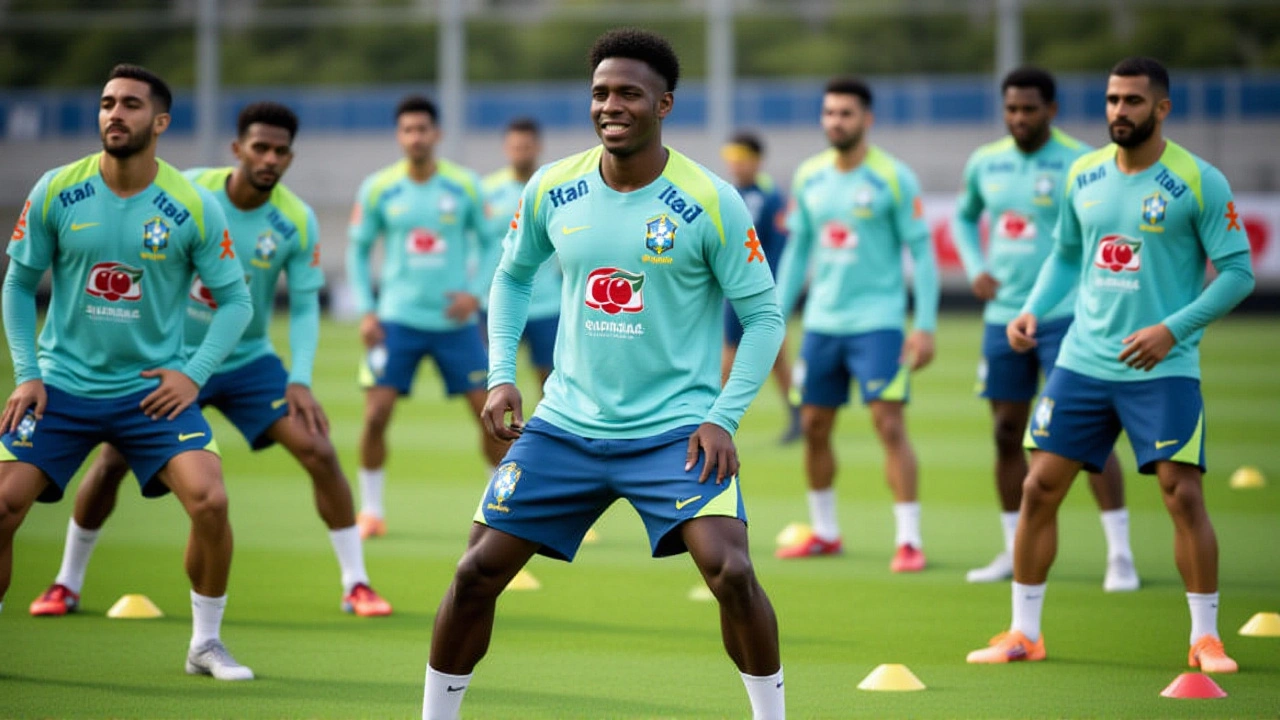
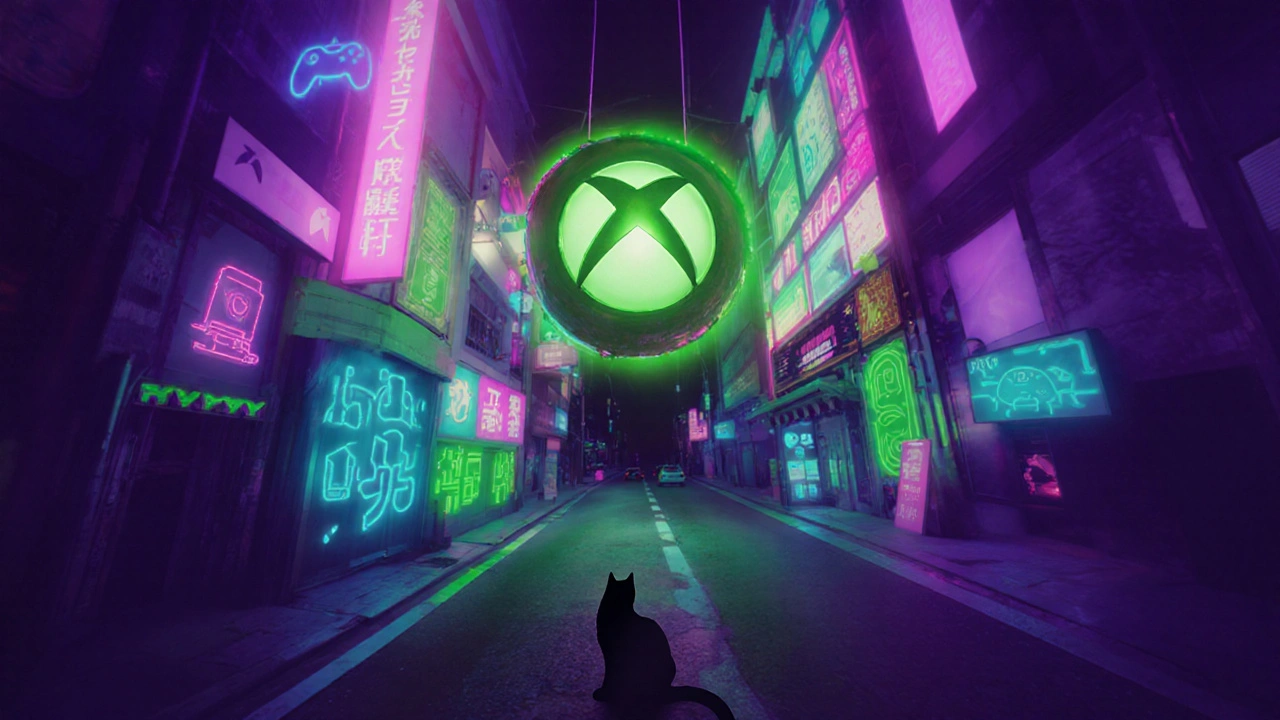
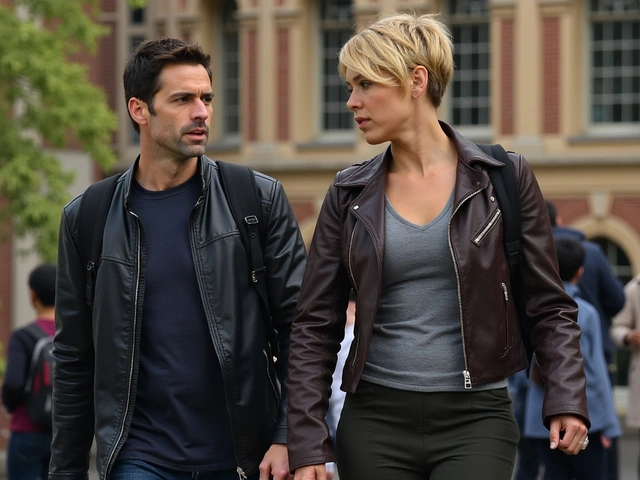
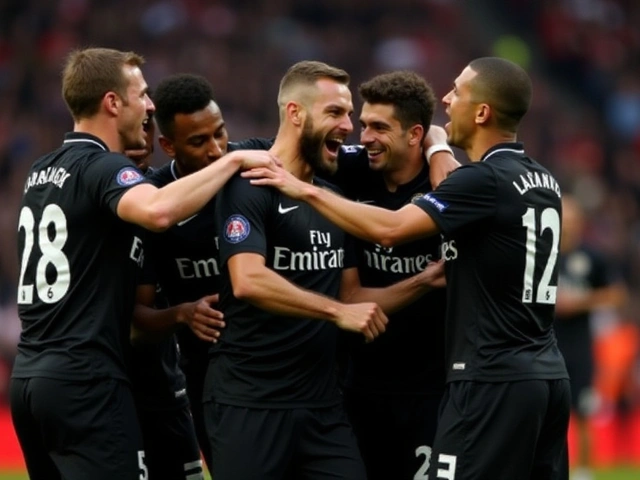

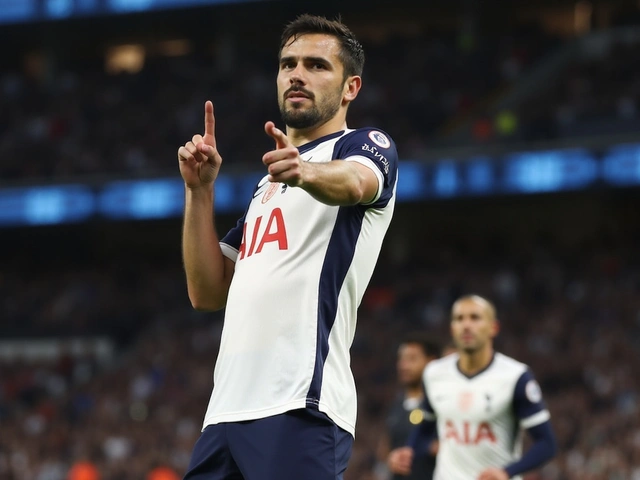
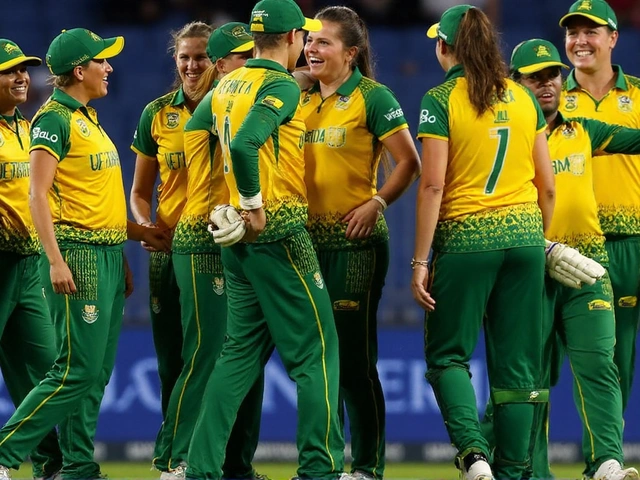
Dennis Lohmann
October 15, 2025 AT 00:20What a thrilling showcase of resilience! Japan’s comeback reminds us that belief can flip a game in under 30 minutes. The crowd’s energy was palpable, and the youngsters in the stands looked inspired. It’s a great lesson for any team facing a deficit – stay compact, strike fast. 😊
Jensen Santillan
October 19, 2025 AT 22:20The tactical adjustments at halftime were the decisive factor in Japan’s resurgence.
Ancelotti’s shift to a higher press disrupted Brazil’s rhythm, allowing the Samurai Blue to win the ball higher up the pitch.
Minamino’s positioning exploited the space left by Brazil’s advancing midfield, creating a clear lane toward goal.
Nakamura’s deflected effort, while partially fortuitous, underscored the importance of maintaining an attacking posture even after conceding.
Ueda’s aerial dominance on the corner exemplified a well‑drilled set‑piece routine that Brazil failed to anticipate.
Brazil’s failure to adapt their defensive line after the second goal exposed a systemic vulnerability in their transition phase.
The statistical swing-possession rising from 42 % to 58 % and shot accuracy tripling-mirrored the psychological lift within the Japanese camp.
Moreover, the Japanese side demonstrated superior stamina, pressing intensely for the final twenty minutes while Brazil’s tempo sagged.
The match also highlighted the impact of players gaining experience in European leagues, as the technical nuances of Minamino and Ueda were evident.
From a broader perspective, this result serves as a case study in how tactical flexibility can outweigh raw talent in high‑stakes encounters.
The Japanese coaching staff’s willingness to deviate from a conservative setup post‑break was a bold but justified gamble.
Conversely, Ancelotti’s late‑stage substitutions did little to restore defensive solidity, suggesting a need for deeper bench options.
The psychological aftermath for Brazil will likely involve revisiting their defensive transition drills ahead of the World Cup.
For Japan, this victory cements a growing belief that they can compete with traditional powerhouses on equal footing.
Ultimately, the match reinforces the adage that football is as much a mental contest as a physical one.
J T
October 24, 2025 AT 20:20Looks like Brazil just got schooled, lol 😊.
A Lina
October 29, 2025 AT 17:20The possession differential post‑intermission reflects a strategic inversion of the expected ball‑retention model, thereby validating the efficacy of a high‑press paradigm shift. By compressing spatial vectors in the midfield third, Japan effectively neutralized Brazil’s transitional phases, converting potential overloads into forced turnovers. The resultant increase in Expected Goals (xG) is statistically congruent with the observed elevation in shot quality, evidencing a causal relationship between press intensity and offensive output. Moreover, the defensive misalignments exhibited by Brazil underscore an inherent susceptibility in their 4‑3‑1‑3 configuration when subjected to sustained vertical pressure. Consequently, the match serves as an empirical illustration of contemporary positional‑play doctrines operationalized in a live international context.
Mark Langdon
November 3, 2025 AT 15:20Man, I felt that swing in the stadium – you could hear the collective gasp when Nakamura’s deflection went in. It’s awesome to see how the team kept pushing, never gave up. The fans’ energy must’ve fueled those final minutes, and the Japanese side rode that wave. Props to both squads for an intense showcase.
Ciara Russell-Baker
November 8, 2025 AT 13:20i cant believe brazil lost, ths is like sooo unexpected lol. they were domninating early but japan just turned it up. whacky match, fr.
Aaron Samarita
November 13, 2025 AT 11:20The narrative you described fits a classic underdog resurgence, yet the underlying data suggests Brazil’s xG remained superior despite the loss. This dichotomy highlights the stochastic nature of conversion efficiency in brief intervals. While the emotional arc is compelling, the statistical anomaly cannot be dismissed as mere sentiment. It reinforces the importance of clinical finishing under pressure.
Daisy Pimentel
November 18, 2025 AT 09:20We must recognize that victories like this transcend the pitch and speak to a collective moral fortitude. When a nation stands united behind its colors, it illustrates the societal virtues of perseverance and humility. The Samurai Blue’s triumph should inspire us to examine our own daily battles with renewed resolve. It is a reminder that true greatness is cultivated through disciplined effort, not fleeting glory.
Ellen Ross
November 23, 2025 AT 07:20While your moralizing is appreciated, it overlooks the concrete tactical missteps that led Brazil to falter; idealistic platitudes cannot substitute for a rigorous analysis of pressing zones and defensive lattices. Moreover, invoking virtue without addressing the granular deficiencies renders the discourse superficial at best.
Fabian Rademacher
November 28, 2025 AT 05:20Ever notice how these "friendly" matches are just a front? They're probably testing some hidden agenda, like manipulating betting lines or pushing a covert narrative about Asian dominance. Don't trust the official stats-they're likely fabricated.
Terrell Mack
December 3, 2025 AT 03:20Great point about the tactical shifts, and it's also worth noting how the coaching staff's halftime talk likely sparked that renewed energy. Keeping the squad focused and adapting on the fly is what separates good teams from great ones. The Japanese coaches should be proud of that flexible mindset.
Dawn Waller
December 8, 2025 AT 01:20Wow!!! So many conspiracy theories, eh?? Honestly, the only "hidden agenda" here is the sheer joy of watching football-no shadowy cabal, just a ball and two nations!!!
Grace Melville
December 12, 2025 AT 23:20Happy to see both teams giving us a memorable match-thanks for sharing! 😊